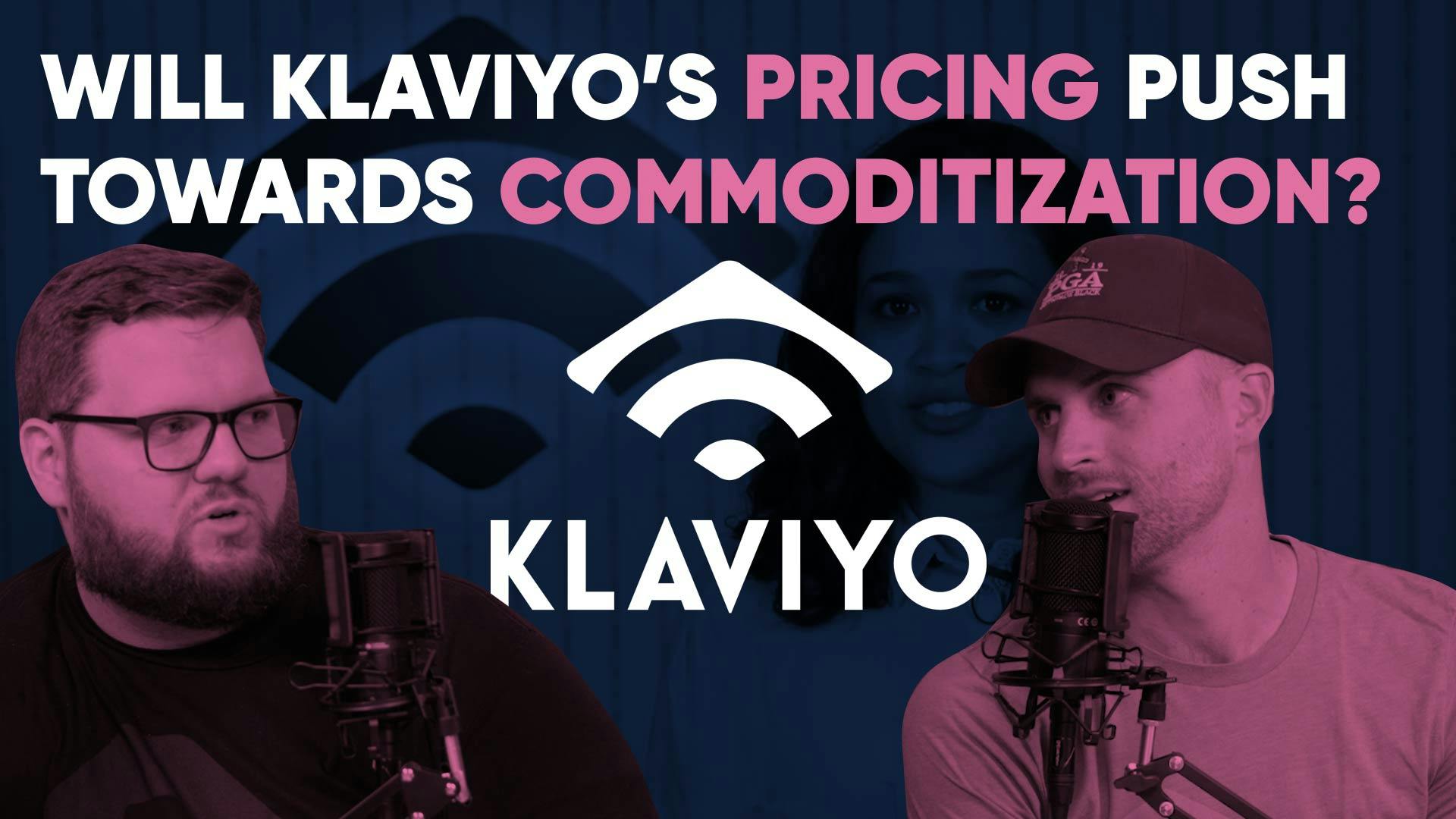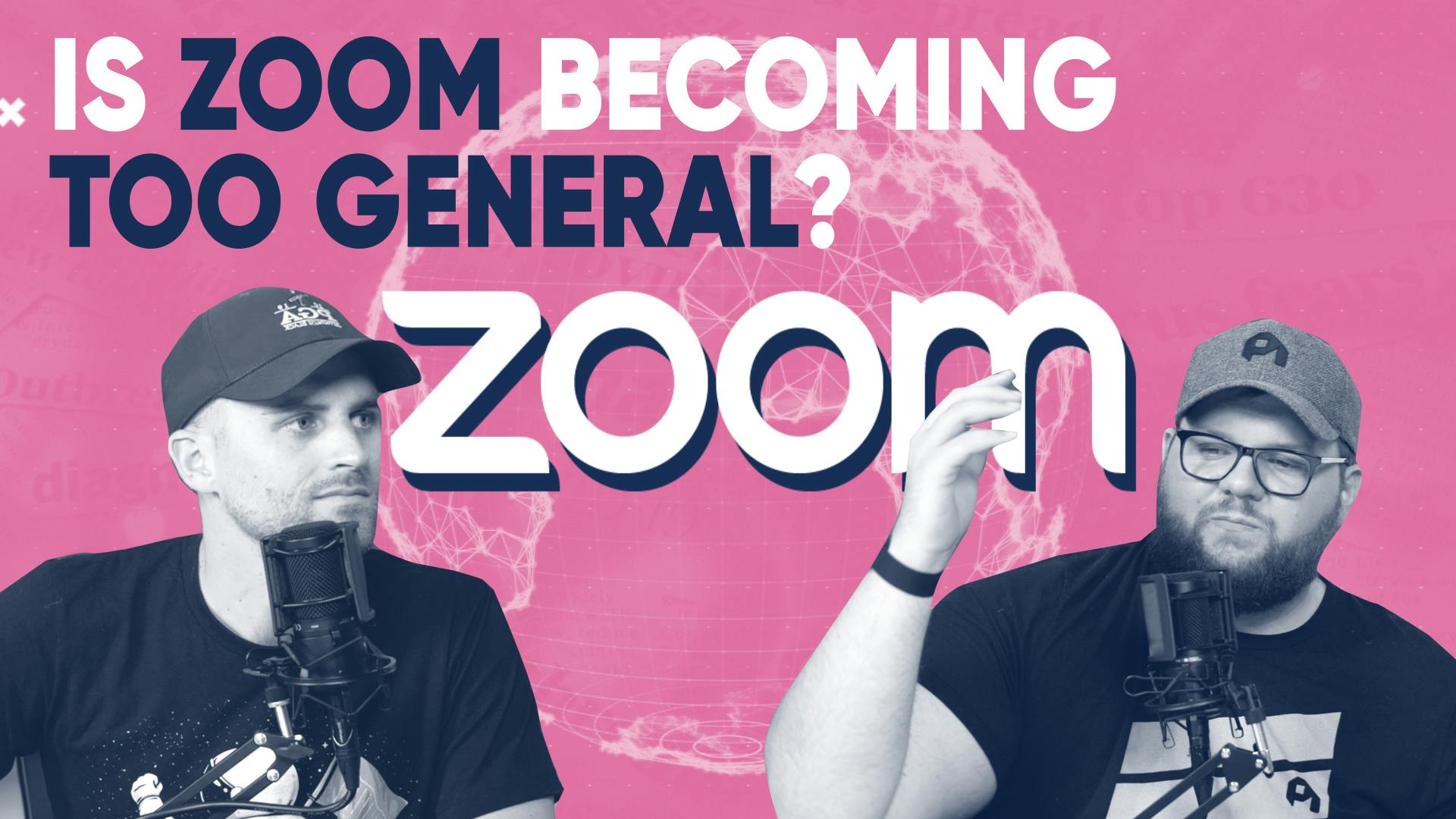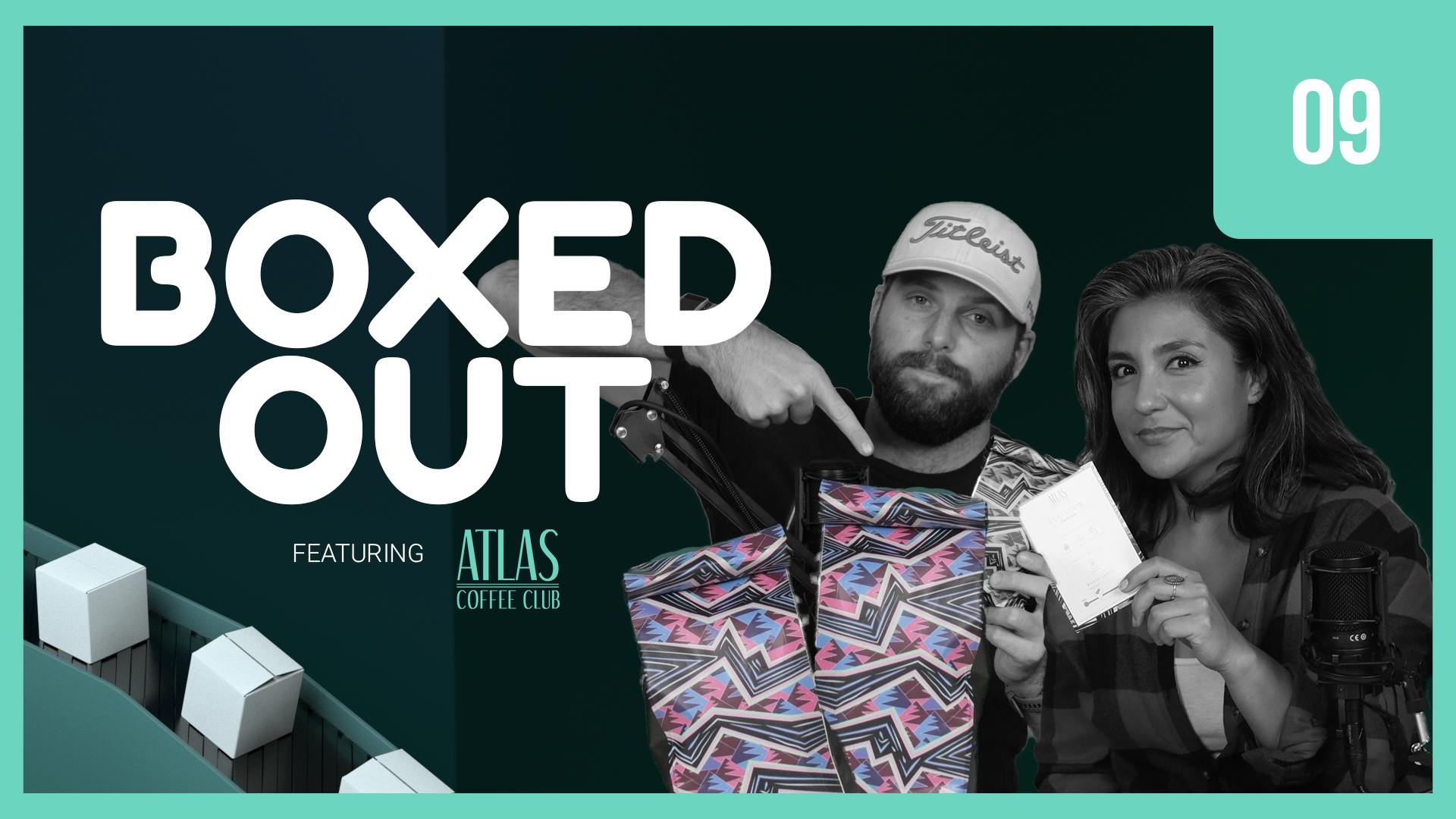
How Fortnite Beat Google
An Epic Win for Competition
Google just lost a major court case to the makers of Fortnite. This isn’t just an Epic win though - it goes far beyond that. It’s a win for competition as a whole, changing the entire landscape of payment software and setting a precedent for how app stores conduct future business. Without the billion dollar giant imposing their fees and cutting deals, everything is about to change and it could affect your business. Fortunately for you, we have a source close to the action. Paddle founder, Christian Owens, has been close to this case since the beginning and offered us his insight on what this all means and where we go from here.
But first, if you like this kind of content and want to learn more, subscribe to get in the know when we release new episodes.

Setting the Table with Apple
Christian Owens: “What we see today with this kind of anteing up kind of started in earnest in probably 2020 when Epic released a version of Fortnite”
Ben Hillman: Christian was a witness in the Epic vs Google trial and he’s also offering testimony in other similar cases. If anyone knows about the ins and outs of a billing system, it's Christian.
CO: “I built the first version of Paddle over ten years ago and…I’m still very focused on payments and kind of our core product and billing.”
BH: But why did Epic call upon Christian’s expertise in the first place? Let’s go back to the start.
The seeds of this Google-sized legal battle were actually sown with a different tech giant. Apple. In 2020, Epic Games, known for their massively popular game Fortnite, bypassed the Apple App Store's payment system with the games in-app purchases. This move was a direct challenge to Apple's policy, which required all apps to use their payment system and, in turn, pay a significant portion of their revenues as fees. And when we say significant, we're talking about an initial charge of up to 30%.
The Outrage for Smaller Developers
CO: “it's people sitting there being like either I've done the work to kind of build this infrastructure myself or I'm willing to do the work to build this infrastructure myself. but you're going to charge me 30%...You're just sort of charging me this money because you can charge it to me”
BH: It’s not just industry giants like Epic getting hit either. Those most affected by these imposing fees tend to be smaller companies that rely on Apple and Google to keep their businesses afloat.
CO: “We're not talking about people who are making hundreds of millions of dollars a year here. We're talking about people who are making hundreds of thousands of dollars, maybe a couple million dollars. They do all of this work and then they're like, wait, what? Like why?”
BH: Even if you put in years worth of work on your own payment platform it didn’t matter. If you didn’t use Apples, you were kicked to the curb with no questions asked. And it somehow gets even more frustrating. When the dust from the first trial cleared, Apple got off almost unscathed. Without a jury to soak in Epic’s emotional appeal, Apple was able to squeak by with legal talk.
CO: “this was…kind of just a judge in the instance of Apple. in the instance of of a jury trial, like you get down to the real essence of the argument as opposed to these kind of legal technicalities and things such as this, that I think you can rely more on when it's just a judge who's sort of been doing this for 20, 30, 40 years”
BH: Apple also didn’t leave much of a paper trail.
CO: “I think it was a quote in an article from from someone at Epic, but Apple didn't write anything down, I think there was far less actual documentation and evidence of things that were happening”
BH: While the Apple trial wasn't a complete success, there was one small victory. Apple lost the ability to block developers from posting links to their own storefronts in their apps. And while this is incremental progress, the experience still isn’t as fluid as it should be. Developers still need more freedom in the market.
Thankfully, Epic wasn’t done with their crusade just yet. They also had their sights set on Google… and this time they had a much better case.
Project Hug
CO: “It was actually pretty shocking, kind of watching some of the trial and reading through some of the coverage of kind of how Google kind of conducted business internally. Two or three days of the trial was spent on the fact that Google was effectively deleting evidence. they were still deleting chat logs and evidence and sort of all of these things.”
BH: Alongside deleting evidence, word got out of Google’s strategy dubbed “Project Hug”, described by executives as a "surge plan to throw extra love/promotion to top developers and games.” With Project Hug, certain companies were given special privileges that others weren't given in exchange for exclusive deals with the Google Play store.
CO: “It goes from absurd to kind of a little bit malicious... it's absurd that you were kind of charging -30% anyway, and now you find out that there are this whole swathe of businesses that it doesn't even apply to and actually only applies to me.”
BH: Project Hug clearly showed bias and nefarious business practices. For example, Activision was given a $360 million check.
CO: “if you're at Activision, you're thinking, hey, like we already have hundreds, millions people who play our games. Like why wouldn't we just launch our own store. And Project Hug was basically we're going to write you really, really big checks, the hundreds of millions of dollars to encourage you to distribute your apps or games on Google Play”
BH: Epic tried to paint these transactions as bribes, but it ultimately wasn’t seen that way by the jury. However, it was difficult for Google to justify giving favorable treatment to some but not all when the majority are stuck paying hefty fees.
CO: “Their arguments were, these are sort of like pre payments or kind of marketing credit. So some of these, when you hear $150 Million or whatever it is, sometimes it's $75 million in cash and then $75 Million in co-marketing. Then you see some of these other deals that were cut, like the Spotify deal where Spotify is effectively paying 0% transaction fees on some of their revenue and only having to pay three or 4% of their revenue for transactions that they process themselves.”
Fortnite Fights Back
BH: By cutting deals to discourage companies from selling on their own platforms, the jury had a lot more evidence of Google running a monopoly. When all was said and done, it was revealed that hundreds and hundreds of secret dealings went on behind the scenes.
With momentum accelerating, Epic Games rallied support from other developers and companies, painting the lawsuit as a fight for a more equitable and open digital marketplace. During their wars with Apple and Google, Epic’s 19 eighty Fortnite campaign and #FreeFortnite swept through social media, highlighting the importance of an app store revolution and rallying fans and industry leaders alike.
With these grassroots campaigns, revelations about Project Hug and the help of testimony like Christians, Epic came out victorious - well mostly.
CO: “the TLDR is google was exerting monopoly power over the play store. I think this legal ping pong is going to happen as well in terms of like what the actual punishment will be…I hope that the the judge takes into consideration both the the fact that the jury did determine that this was a monopoly and that Google were acting poorly”
But despite the jury’s decision, a lot of questions remain regarding the future of digital marketplaces. Is this truly the start of an app store revolution and could your business be on the frontlines? Christian sure thinks so.
The Ensuing War
CO: “it's really easy to say that when you kind of have a horse in the race. But…If this is opened up to competition, like whether that's competition on payments, whether it's competition more broadly, if like actually these app stores sort of cease to be gatekeepers, I think we have an app environment that just looks a lot like the web environment thats existed in for kind of 20, 30 years and has been pretty great.”
BH: With the landscape as a whole changing and opening up more competition, naturally there will be a growing trend towards web-based solutions for app distribution and payment. This change could provide developers with more independence, free from the traditional app store constraints and given the chance to directly engage with their actual user base.
CO: “Like a year ago or a year and a half ago…the folks who make basecamp and the email app called Hey they were trying to get on the iOS. They didn't want to pay Apple's 30% fee and they said fine like we won't sell. They say that like this whole idea of native applications and all of this stuff happening natively in these apps you have to download from the App Store is kind of bullshit. Companies like 37 Signals and Hey, say like we can build as good of an app, like an email app or a calendar app, like using these web based technologies that feels like a mobile app that feels native. Web technologies and things like this have come along so much that you can build really great experiences”
BH: But even with more competition in the space and better web-based solutions, nothing is without downsides. Apple and Google have a history of flipping bad PR into good PR. They could take advantage of the verdict and flip the script entirely.
CO: “I don't know whether this is going to be a year from now or three years from now or whatever. I think we'll see a complete reversal probably from Apple rather than from Google, where they will open up all of this stuff to competition. They'll figure out some other ways to monetize, and then they'll make everyone think it was their idea the whole time because they do this with everything you see this with like Usb-c now”
BH: And what is Christians advice to those looking to traverse the App Stores of the future? It’s a pretty ambiguous future after all.
CO: “We don't know what the implementation when Google and Apple goes away and creates is going to look like. So I would say like the biggest thing is, is just building with optionality, like building with flexibility in mind building with sort of trying to abstract away kind of a lot of this sort of your reliance on different kind of providers to do stuff. Don't rely on the App Store version of doing something. Don't rely on the the play store version of doing something”
BH: This story is still on-going. Not even a week after filming our interview with Christian, Apple is already considering sideloading and has already changed their app store guidelines to a more liberal policy on outside payment methods. Google certainly plans to appeal just as Epic appealed to the US Supreme court in the Apple case, So be prepared for what's next.
If you like this kind of content and want to learn more, subscribe to get in the know when we release new episodes.

00:00:00:00 - 00:00:23:20
Ben Hillman
Google just lost a major court case to the makers of Fortnite. But this isn't just an epic win. It goes far beyond that. It's a win for competition as a whole. Changing the entire landscape of payment software and setting up a precedent for how app stores conduct future business. This is a story about billion dollar giants claiming to do no evil, imposing their fees and cutting up shady backroom deals.
00:00:24:02 - 00:00:45:18
Ben Hillman
But everything is about to change and it could affect your business. Fortunately for you, we have a source close to the action. Christian Owens has been close to this case since the beginning and will tell us what all of this means and where we go from here.
00:00:45:20 - 00:00:51:04
Christian Owens
Really, what we see today with this kind of amping up started in earnest in probably 2020.
00:00:51:06 - 00:01:01:16
Ben Hillman
Paddle founder Christian Owens was a witness in that epic versus Google trial, and he's also offering testimony and many other similar cases. If anyone knows the ins and outs of a billing system, it's Christian.
00:01:01:22 - 00:01:14:02
Christian Owens
I built the first version of Paddle Over ten years ago, a sort of really just try to stay as close as I can to the product that we build and how we help people building apps and software.
00:01:14:02 - 00:01:34:04
Ben Hillman
But why did Epic call upon Christians expertise in the first place? Let's go back to the start. You see, the seeds of this Google sized legal battle were actually sown with a different tech giant Apple in 2020. Epic games known for their massively popular game, Fortnite bypassed the Apple App Store as payment system with the game's in-app purchases.
00:01:34:06 - 00:01:48:12
Ben Hillman
This move was a direct challenge to Apple's policy, which required all apps to use their payment system and in turn pay a significant portion of their revenues as fees. We're talking about an initial charge of up to 30%.
00:01:48:13 - 00:02:02:16
Christian Owens
It's people sitting there being like, either I've done the work to kind of build this infrastructure myself. I'll take this burden off of you that you're going to charge me 30% for. You're just sort of charging me this money because you can charge it to me.
00:02:02:20 - 00:02:11:13
Ben Hillman
It's not just big players like Epic getting hit either. Those most affected by these imposing fees tend to be smaller companies that rely on Apple and Google to keep their businesses afloat.
00:02:11:18 - 00:02:20:23
Christian Owens
We're not talking about people who are making hundreds of millions of dollars a year here. We're talking about people who are making hundreds of thousands of dollars, maybe a couple million dollars, and they have a small team.
00:02:21:03 - 00:02:37:16
Ben Hillman
Even if you put in years worth of work on your own payment platform, it didn't matter if you didn't use Apple's, you were kicked to the curb with no questions asked. And somehow it gets even more frustrating when the dust from the first trial cleared, Apple got off almost unscathed. Without a jury to soak in Epic's emotional appeal.
00:02:37:21 - 00:02:40:05
Ben Hillman
Apple was able to squeak by with legal talk.
00:02:40:07 - 00:02:57:15
Christian Owens
This was a jury trial in the instance of Google, and it was a bench trial, kind of just a judge in the instance of Apple, actually in the instance of a jury trial. You get down to the real essence of the argument as opposed to these kind of legal technicalities and things such as this.
00:02:57:17 - 00:03:00:21
Ben Hillman
This has mostly been attributed to Apple's walled garden approach.
00:03:01:00 - 00:03:13:09
Christian Owens
Second, I think it was a quote in an article from From Someone to Epic. Apple didn't write anything down, I think was the quote. There was far less actual documentation and evidence of things that were happening while.
00:03:13:09 - 00:03:35:08
Ben Hillman
The Apple trial wasn't a complete success. There was one small victory. Apple lost the ability to block developers from posting links to their own storefronts and while this is incremental progress, the experience still isn't as fluid as it should be. Thankfully, Epic wasn't done with their crusade just yet. They also had their sights set on Google and this time they had a much better case.
00:03:35:10 - 00:03:46:06
Christian Owens
It was actually pretty shocking. Some of the trial and reading through some of the coverage, two or three days of the trial was spent on the fact that Google was effectively deleting.
00:03:46:06 - 00:04:10:08
Ben Hillman
Evidence alongside deleting evidence. Word got out about Google's nefarious strategy, dubbed Project Hug described by executives as a surge plan to throw extra love slash promotion to top developers and games with Project Hug. Certain companies were given special privileges that others weren't given in exchange for exclusive deals with the Google Play Store. Project Hug clearly showed bias and nefarious business practices.
00:04:10:14 - 00:04:14:12
Ben Hillman
For example, Activision was given a $360 million check.
00:04:14:17 - 00:04:28:22
Christian Owens
If you're at Activision, you're thinking like, why wouldn't we just launch our own store where you can buy all of our games from Project Hog was basically we're going to write you really, really big checks to encourage you to distribute your apps on Google Play.
00:04:29:00 - 00:04:42:05
Ben Hillman
I tried to paint these transactions as bribes, but it ultimately wasn't seen that way by the jury. However, it was difficult for Google to justify giving favorable treatment to some, but not all. When the majority are stuck, paying have to change.
00:04:42:08 - 00:05:12:04
Christian Owens
Their arguments for these are sort of like three payments or kind of marketing credit. So some of these, when you hear $150 million or whatever it is, sometimes it's $75 million in cash and then $75 million in co-marketing. But then you see some of these other deals that were cut like the Spotify deal, where Spotify is effectively paying 0% transaction fees on some of their revenue and only having to pay three or 4% of their revenue for transactions that they process themselves.
00:05:12:06 - 00:05:34:14
Ben Hillman
By cutting deals to discourage companies from selling on their own platforms. The jury had a lot more evidence to pin on Google. When all was said and done, it was revealed that hundreds and hundreds of secret dealings went on behind the scenes during their wars with Apple and Google, Epic's 1980 Fortnite campaign and hashtag free Fortnite swept through social media with these grassroots campaigns.
00:05:34:18 - 00:05:42:18
Ben Hillman
Revelations about Project Hug and the help of testimony like Christians. Epic came out victorious. Well, for the most part, what.
00:05:42:18 - 00:05:53:22
Christian Owens
I think Google is just going to roll over and be like, Nope, like all bad, you got us kind of, We'll do whatever you say. I think this legal ping pong is going to happen as well.
00:05:54:02 - 00:06:02:14
Ben Hillman
But despite the jury's decision, a lot of questions remain regarding the future of digital marketplaces. Is this truly the start of an app store revolution?
00:06:02:16 - 00:06:18:16
Christian Owens
My feeling is that if this is opened up to competition, like actually these app stores sort of cease to be gatekeepers. I think we have an app environment that just looks a lot like the web environment we've existed in for kind of 20, 30 years and has been pretty great.
00:06:18:21 - 00:06:36:20
Ben Hillman
With the landscape as a whole changing and opening up to more competition. Naturally, there will be a growing trend towards web based solutions for app distribution and payment. This change could provide developers with more independence free from the traditional app store constraints and given the chance to directly engage with their actual user base.
00:06:36:22 - 00:06:58:12
Christian Owens
Like a year ago or a year and a half ago, there was this big drama that was that was happening around that new email app called Hey David They're one of the founders of of of Base Camp. But like this whole idea of native applications and all of this stuff happening natively in these apps you have to download from the app store is kind of bullshit.
00:06:58:12 - 00:07:05:13
Christian Owens
And it's and it's like we should tell this web technologies and things like this have come along so much that you can build a really great experience.
00:07:05:18 - 00:07:18:20
Ben Hillman
But even with more competition in the space and better web based solutions, nothing is without downsides. Apple and Google have a history of flipping bad PR into good PR. They can even take advantage of the verdict and flip the script entirely.
00:07:18:22 - 00:07:38:15
Christian Owens
They'll figure out some other ways to monetize, and then they'll make everyone think it was their idea the whole time. Because they do this with everything you see this with like, Usb-c now. Like then we have an Apple announcement where they're like, We've created this great new innovation of Usb-c. We don't know exactly how the likes of Apple and Google are going to implement whatever the solution is.
00:07:38:16 - 00:07:49:03
Christian Owens
So I think just build with flexibility and optionality in mind and don't rely on the App Store version of doing something. Don't rely on the play store version of doing something.
00:07:49:05 - 00:08:12:08
Ben Hillman
This story is still ongoing. Not even a week after filming our interview with Christian. Apple is already considering Sideloading and has already changed their App Store guidelines to a more liberal policy on outside payment methods, just like Christian predicted. Google certainly plans to appeal, just as Epic appealed to the US Supreme Court in the Apple case. We're releasing the full interview with Christian next week, so you'll be prepared when Don't be Evil does evil again.






